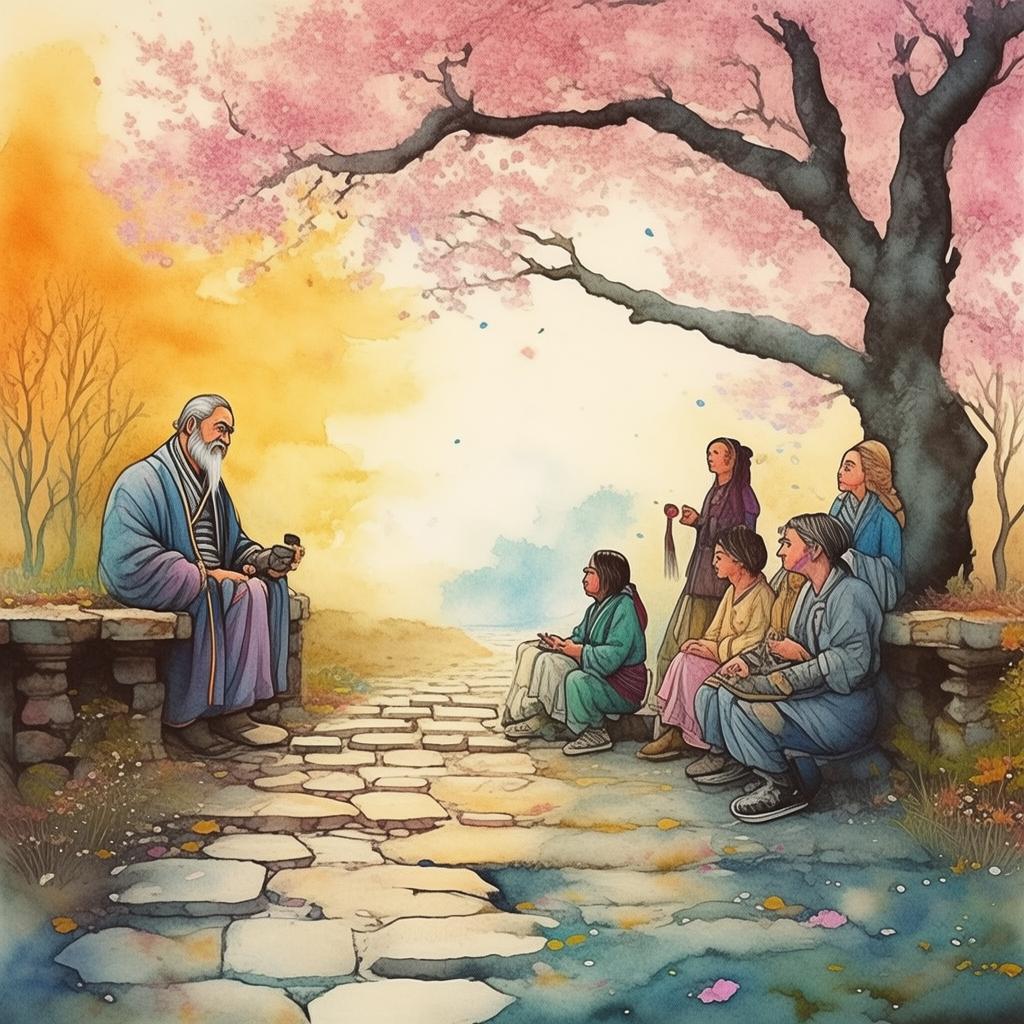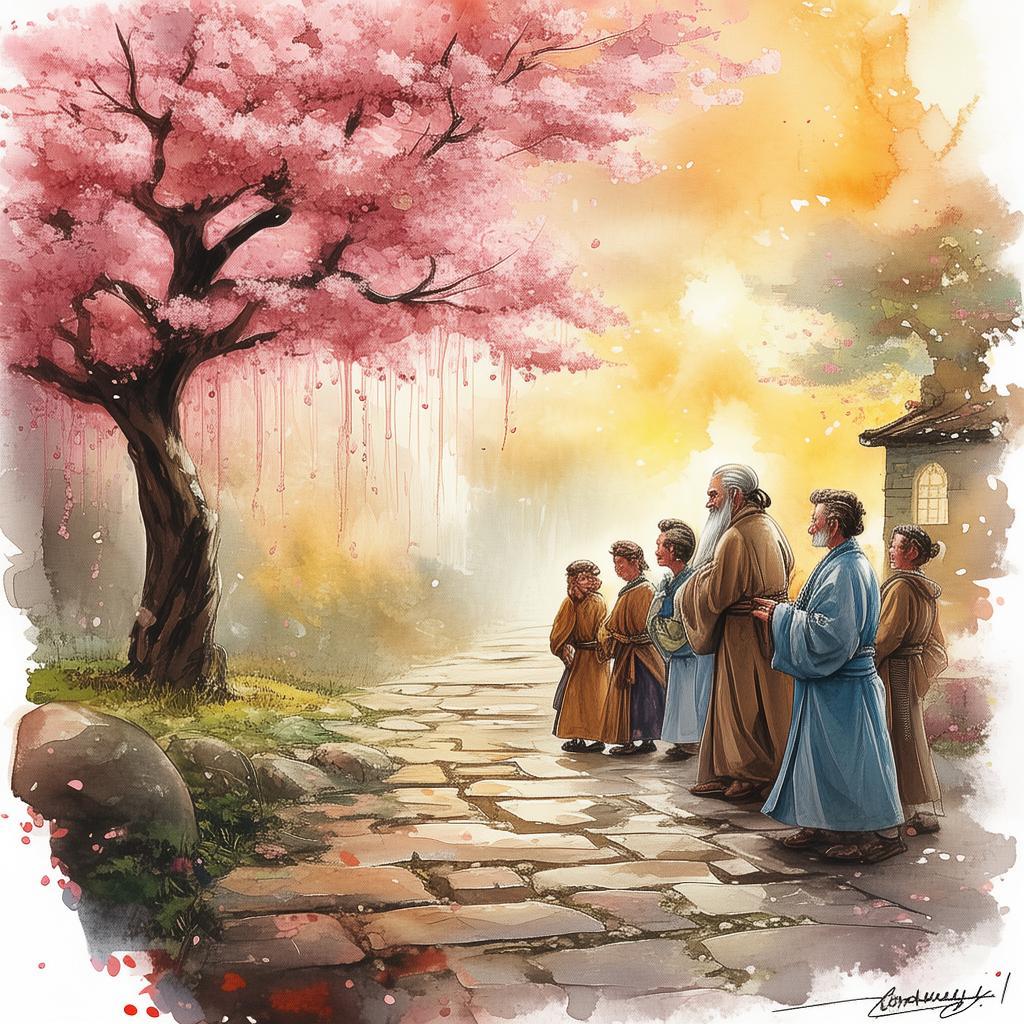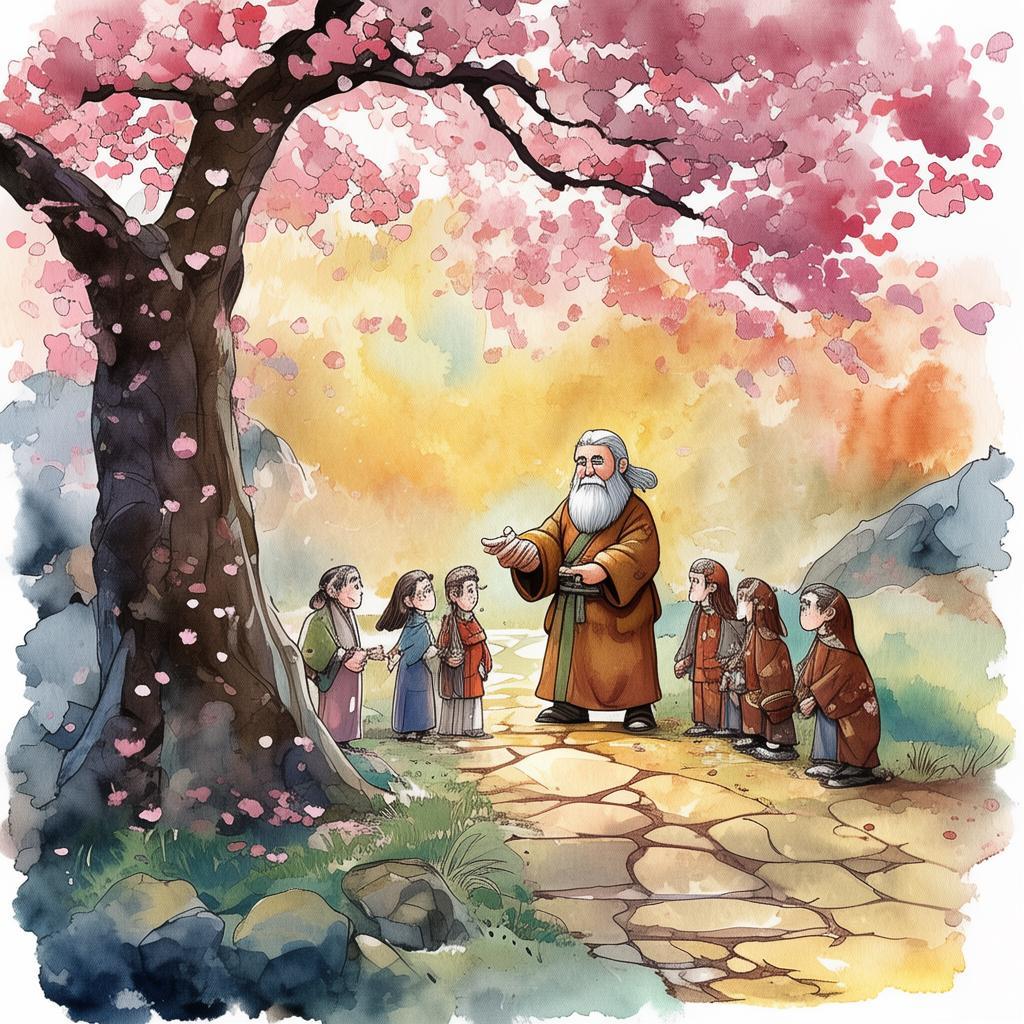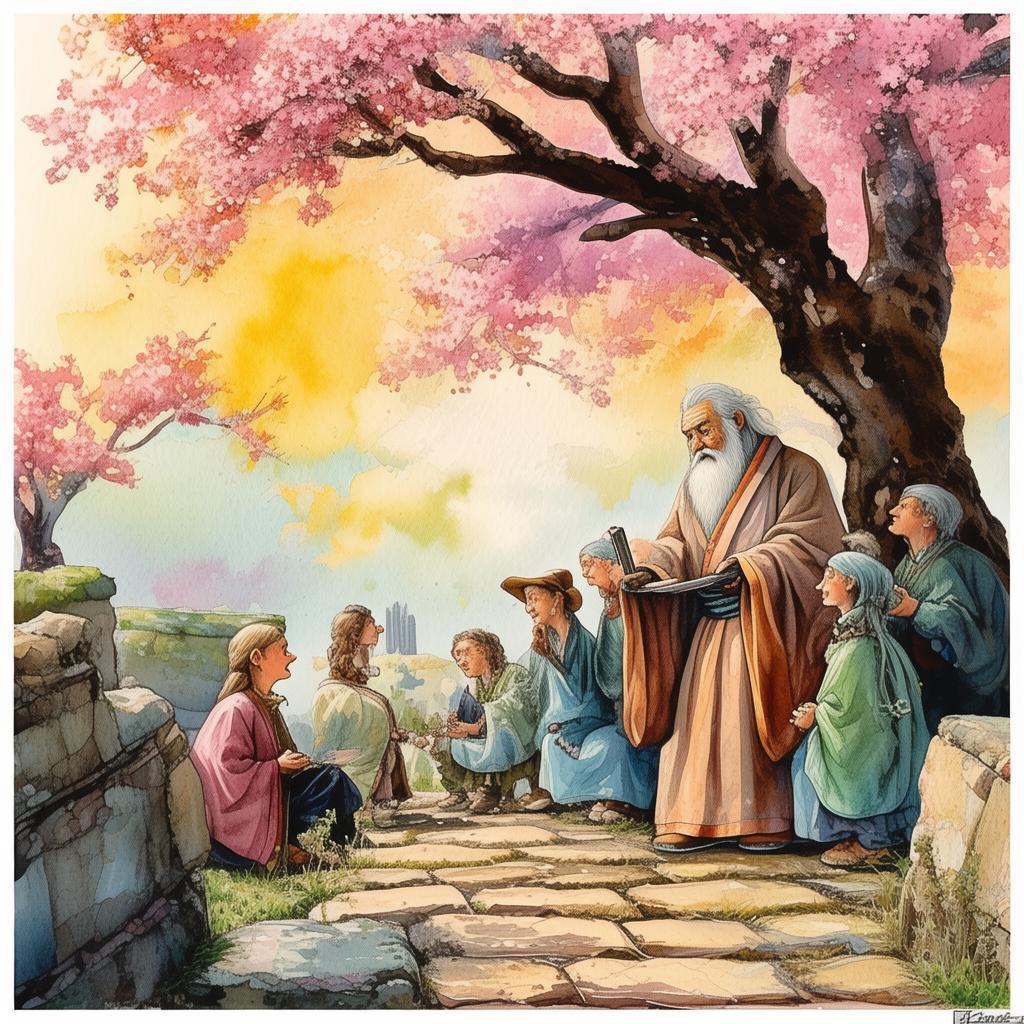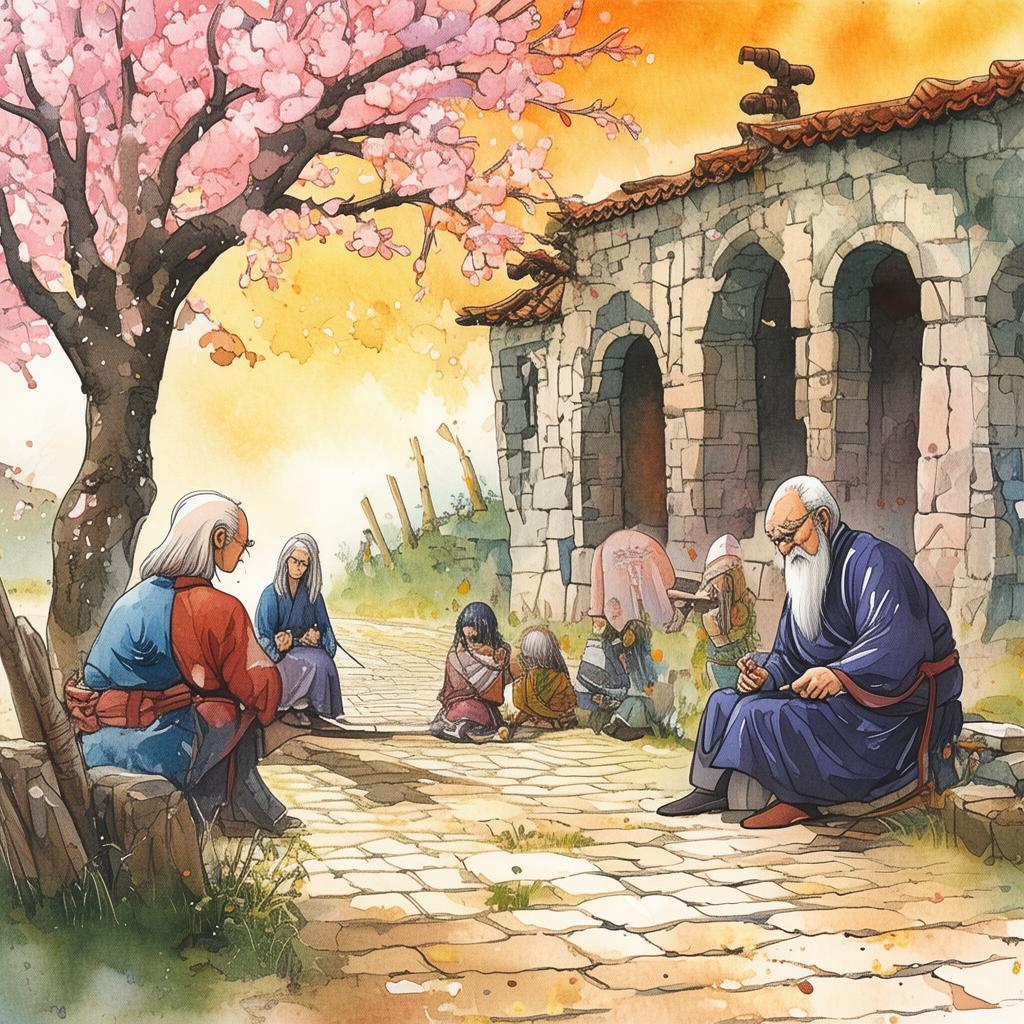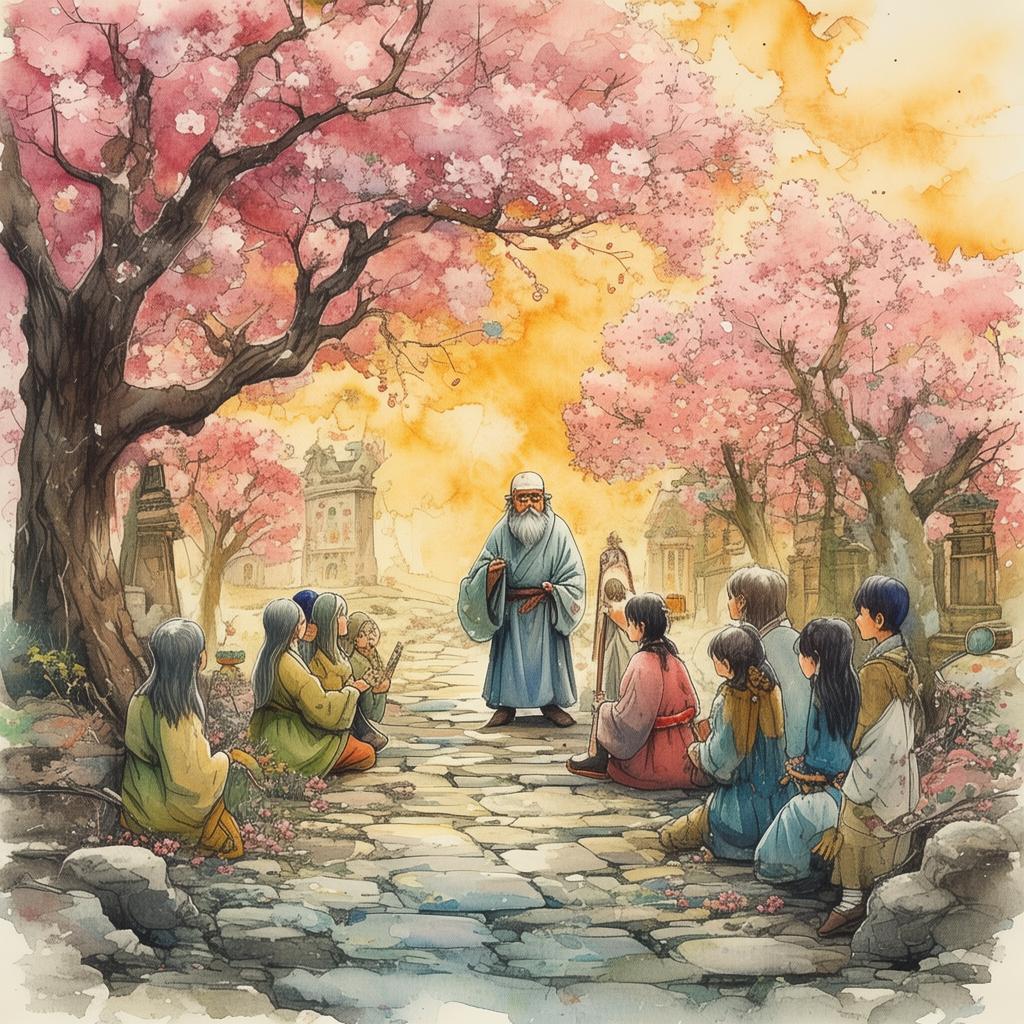The Chessboard of the Lost Temple: The Master's Dilemma
In the heart of the ancient Silk Road, there lay a temple hidden from the eyes of the world. It was said that within its walls, the secrets of chess enlightenment were preserved, a legacy from a time when the game was more than a pastime, but a path to profound understanding. The temple was known to the few who had found it, but its true nature remained a mystery.
Among these few was Master Jin, a man whose life was chess. He had spent decades honing his skills, mastering every nuance of the game, and yet, he felt an emptiness that only the pursuit of enlightenment could fill. One fateful day, as he wandered the desolate roads, he stumbled upon a signpost that pointed to the hidden temple.
The journey was long and arduous, but Master Jin's determination never wavered. He reached the temple, its ancient stone walls cloaked in mist and mystery. As he stepped inside, he was greeted by a serene chamber, the walls adorned with intricate carvings of chess pieces and boards. In the center of the room stood a single chessboard, its surface glowing faintly with an otherworldly light.
Before him appeared an old man, his eyes twinkling with ancient wisdom. "Welcome, Master Jin," he said. "You have come seeking enlightenment. The chessboard before you holds the key to the secrets of the temple. Choose your move wisely."
Master Jin's heart raced with anticipation. He had spent his life studying the game, but this was different. This was a game of life and death, of enlightenment and darkness. He pondered the board for what felt like hours, each piece a symbol of his past, his present, and his future.
Finally, he made his move. With a deep breath, he placed a pawn on the board. The old man nodded, a faint smile playing on his lips. "You have chosen the path of the pawn, the path of service and sacrifice. It is a wise choice."
As the game progressed, Master Jin found himself facing difficult decisions. Should he use his power to secure victory, or should he choose the path of peace, allowing his opponent to win? Each move brought him closer to understanding the true nature of chess and the lessons it held for life.
The game reached a climax, and Master Jin found himself in a position where he could either win or lose everything. He looked at the old man, who seemed to be watching him with a knowing gaze. "What should I do?" he asked, his voice barely above a whisper.
The old man smiled, and the room seemed to shimmer around them. "The true master does not seek to win or lose, but to understand the game. The game is a reflection of life itself. You must learn to balance power and peace, to understand the value of each move."
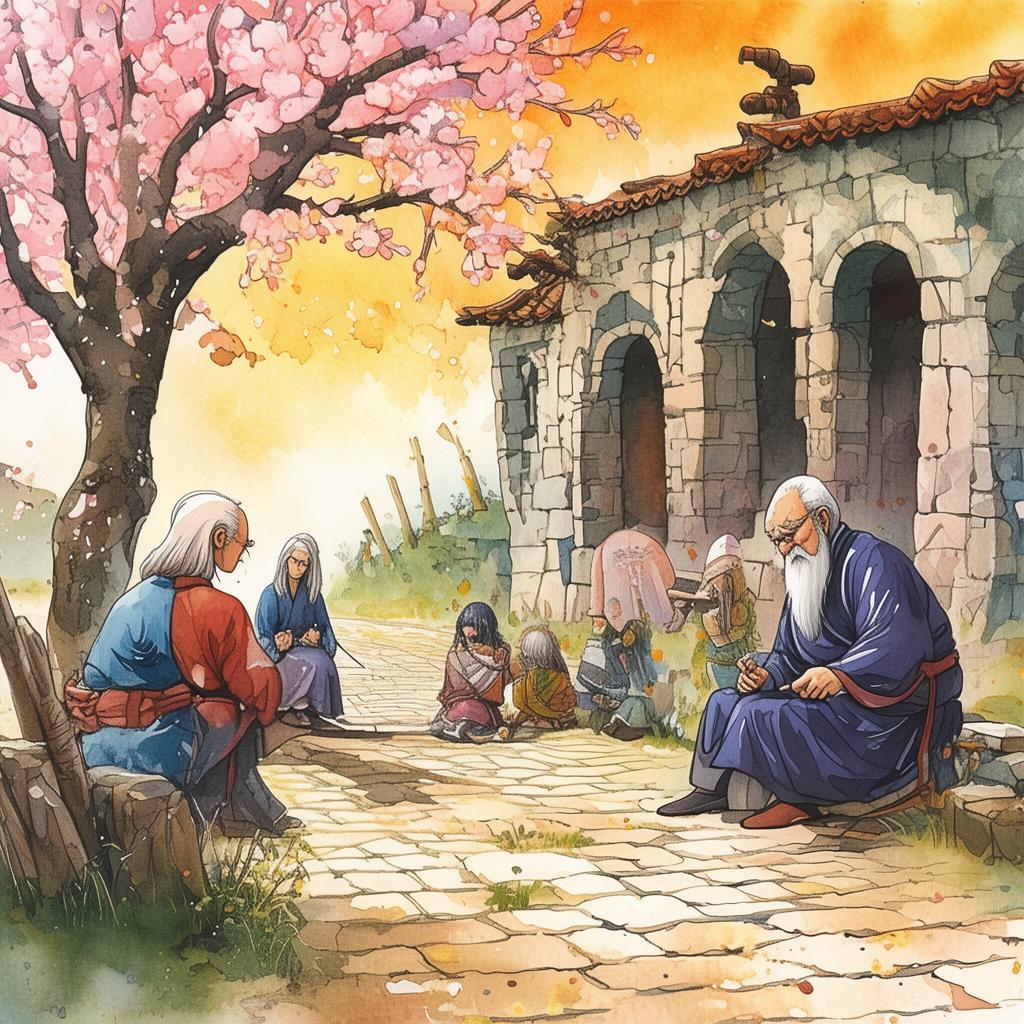
With these words, the old man vanished, leaving Master Jin alone with the chessboard. He realized that the game was not about winning or losing, but about the journey and the lessons learned along the way. He made his final move, not with the intent to win, but to understand.
As the game ended, Master Jin felt a profound sense of peace. He had found the enlightenment he had been seeking, not in the power of the game, but in the wisdom it held. He left the temple, the secrets of the chessboard now part of him, ready to face the world with a new perspective.
The Chessboard of the Lost Temple had taught Master Jin that the true essence of chess was not in the victory or defeat, but in the journey and the enlightenment it offered. And with this newfound wisdom, he returned to his life, a changed man, ready to share the lessons of the temple with the world.
✨ Original Statement ✨
All articles published on this website (including but not limited to text, images, videos, and other content) are original or authorized for reposting and are protected by relevant laws. Without the explicit written permission of this website, no individual or organization may copy, modify, repost, or use the content for commercial purposes.
If you need to quote or cooperate, please contact this site for authorization. We reserve the right to pursue legal responsibility for any unauthorized use.
Hereby declared.
